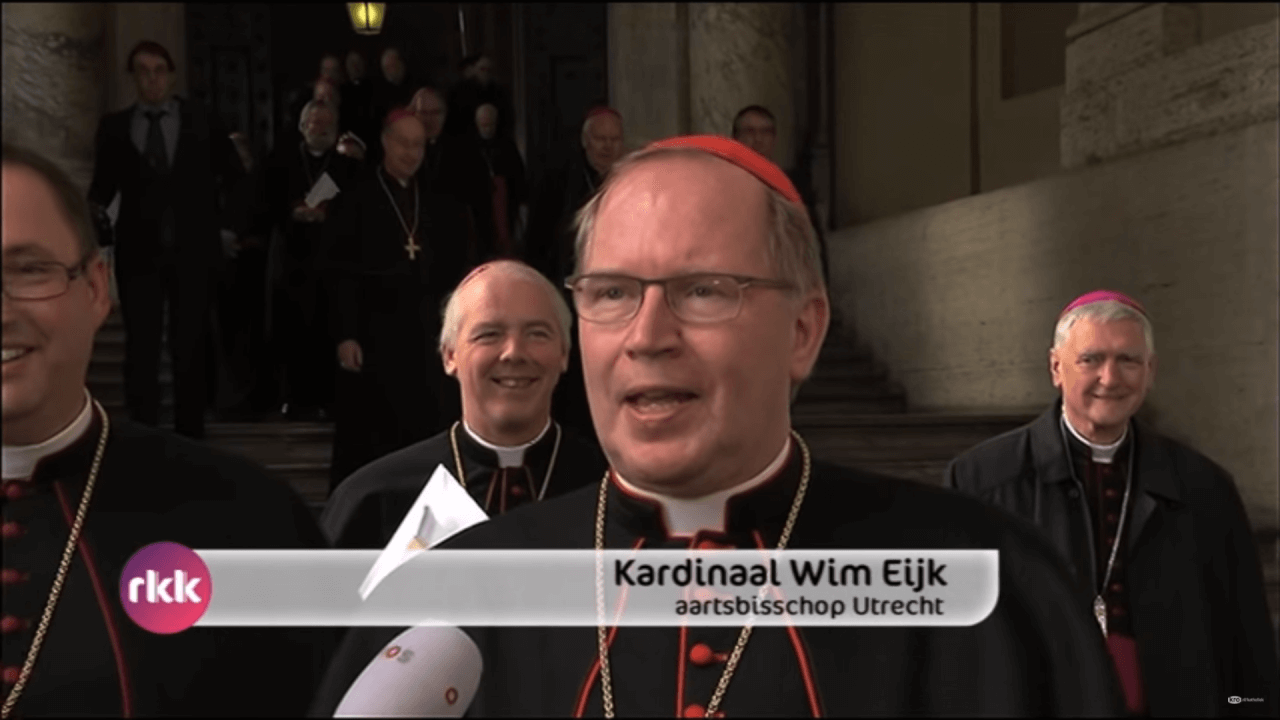Image: screenshot/YouTube.
A surprising piece of news comes to us today from Netherlands. Cardinal Willem Eijk, the Archbishop of Utrecht (Netherlands), announces on his diocese’s official website that he has been re-appointed to be a member of the Pontifical Academy for Life (PAL) which currently has (as of today) no official members except for the governing team under Archbishop Vincenzo Paglia. Cardinal Eijk’s announcement indicates that he has been appointed as a member of the PAL for a term of five years.
This recent appointment, therefore, is the first initiative taken by Pope Francis regarding the PAL since the end of 2016, when all active members were dismissed from their previous positions.
As we reported in November of 2016, the dismissal of all of the standing members of the PAL was then seen as a somewhat problematic development in the context of the change of atmosphere in Rome under Pope Francis. Among the PAL members dismissed, there had been several outspoken critics of Pope Francis’ laxer approach to the “remarried” divorcees and concerning other moral issues; among these members were:
- Cardinal Willem Eijk. He signed the 13 Cardinals Letter and co-authored the Eleven Cardinals Book;
- Cardinal Elio Sgreccia. He wrote a preface to a book written by Cardinal Ennio Antonelli defending the traditional Catholic teaching on marriage;
- Professor Josef Seifert. He wrote a detailed critique of Amoris Laetitia and asked for its clarification;
- Professor Robert Spaemann. He gave several interviews strongly opposing parts of Amoris Laetitia and supporting the Four Cardinals’ dubia;
- Professor Wolfgang Waldstein. He signed the Declaration of Fidelity with regard to the Catholic teaching on marriage.
- John Haas, President of the National Catholic Bioethics Center (NCBC) in Philadelphia. He was a governing member of the PAL and is now no longer even listed as a former member of that Academy. The NCBC, under Dr. Haas’ leadership, had issued, in February of 2016, a statement regarding the Zika virus which refutes the proposed and spreading idea of licitly using artificial contraceptives in this context of a disease, or even to kill a baby in the womb with the help of an abortion. The NCBC statement was issued four days after Pope Francis himself had openly proposed considering the use of such contraceptives as a measure of prevention, blocking conception, in view of the seemingly spreading Zika virus. Though the NCBC document itself does not explicitly mention the pope by name, it was a clear response to the pope’s own statement on the matter.
The fact that Pope Francis now chose Cardinal Eijk himself to be a member of the PAL once again could also be a strategic decision in order to calm serious concerns about the papal decisions with regard to the PAL. Just today, Edward Pentin, of the National Catholic Register, published a longer article in which he discusses various problems relating to the PAL and its current controversial President, Archbishop Paglia. Pentin’s article is entitled “Former Pontifical Academy for Life Members Concerned Over Its Current Course,” and, among several critics, he refers to a founding member of the PAL, Christine Vollmer, president of the Latin American Alliance for the Family, and he comments, as follows:
Many see the ending of members’ terms as a purge aimed at precisely replacing them with those who are less rigorously protective of all human life and, according to Vollmer, without the experience of the “struggle ‘on the ground.’”
It is yet to be seen who else will be appointed by Pope Francis to be a member of the PAL. It is too early to conclude that Cardinal Eijk’s re-appointment is a signal that the pope intends to repopulate the PAL with staunch defenders of the Catholic Church’s moral teaching.


